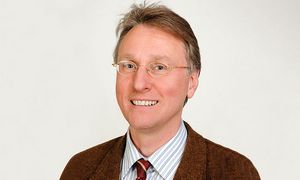What is schizophrenia?
Approximately one percent of the population suffers from a disease of the schizophrenic form. The term schizophrenia is used to describe a wide variety of clinical manifestations that involve changes on various levels such as perception, feeling, thinking, or psychomotor skills. This results in misinterpretations and a loss of reality-, that manifests itself in thoughts and actions that are out of touch with reality, which in turn has an alienating effect on outsiders. Patients often withdraw from their social environment. The symptoms can occur in all phases of life. However, onset usually occurs during young adulthood.
Course of the disease
A sudden onset is called an acute episode. Typically, this is preceded by a series of symptoms such as feelings of tension, insomnia, or experiences of alienation, which are rarely recognized as a preliminary stage. The phase of recovery is dominated by lack of drive and emotion. If left untreated, around 85 percent of patients suffer one or more relapses. With modern drugs, this rate can be reduced to 15 percent, making the condition well treatable and offering patients the chance of healing.
Therapy
The treatment concept is based on national and international diagnosis and treatment guidelines and includes detailed psychiatric and physical diagnostics.
We offer all modern therapeutic procedures for schizophrenic and psychotic disorders on our main ward 4 East with 23 beds, such as drug therapy controlled by therapeutic drug monitoring, individual and group psychotherapy with emphasis on psychoeducation, and meta-cognitive training. In addition, everyday skills are practiced and the return to working life is encouraged.
Further treatment
We cooperate closely with relatives and self-help groups as well as the organization Verein Der Regenbogen. In addition to in-patient treatment, we also offer day-care and, to a limited extent, further out-patient treatment.
Furthermore, in cooperation with the charitable society "Der Regenbogen e.V.", several places for assisted living are available.
Contact
Appointment
Policlinic
Phone: + 49 931 201-77800
E-Mail: ep_poli@ukw.de
In-patient care
Phone: +49 931 201-76050
E-Mail: ep_poli@ukw.de
Clinic directorate
Prof. Dr. med. Jürgen Deckert
Secretary´s office
Phone: +49 931 201-77010
Fax: : +49 931 201-77020
E-Mail: ps_sekr@ukw.de
Address
Klinik und Poliklinik für Psychiatrie, Psychosomatik und Psychotherapie des Universitätsklinikums | Margarete-Höppel-Platz 1 | 97080 Würzburg | Deutschland

